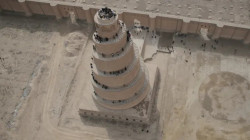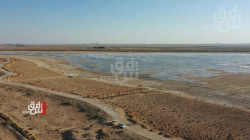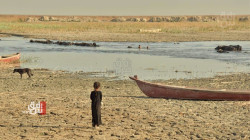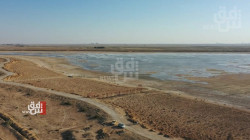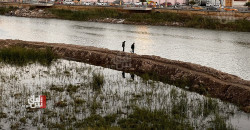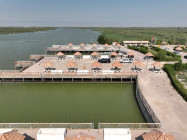Archaeological Armageddon: Climate change threatens Iraq's unexcavated history
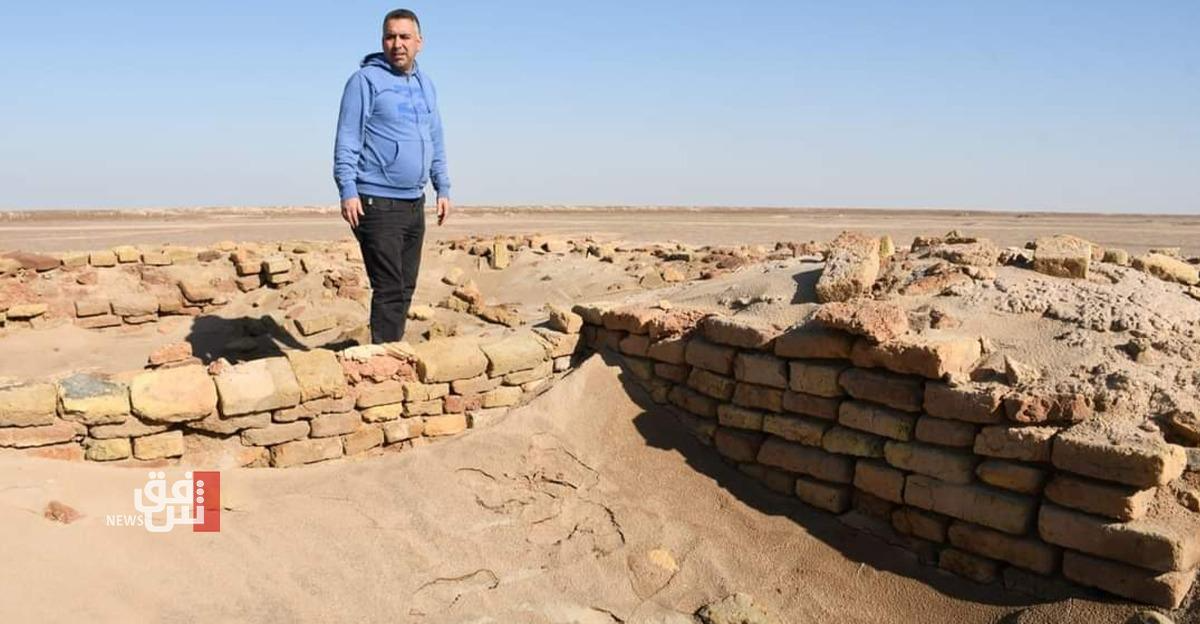
Shafaq News/ The ruins of ancient cities lie cracked and crumbling under the scorching sun. Dust storms sweep across ziggurats older than the pyramids. In Iraq — the cradle of civilization — history is not just being forgotten; it’s being erased.
From the marshes of Sumer to the walls of Babylon (Babil), climate change is now the greatest threat to a heritage that once shaped the modern world. As heat intensifies and water disappears, the birthplace of writing, law, and astronomy faces a quiet, devastating extinction.
A Race Against Time
Iraq ranks among the top five countries most affected by climate extremes, according to the United Nations. Soaring temperatures, intensified sandstorms, prolonged droughts, and rising soil salinity are accelerating the destruction of the country’s archaeological wealth.
Ahmed Al-Elyawi, spokesperson for Iraq’s Ministry of Culture, Tourism and Antiquities, told Shafaq News that “Extreme weather now poses direct and serious risks to antiquities,” a threat significant enough to prompt both national and international conferences focused on preservation.
“Without urgent and coordinated action, the physical legacy of Mesopotamia may be lost to time — before it is fully uncovered or understood.”
A Vast but Vulnerable Legacy
Iraq’s 15,000 known archaeological sites reflect an unmatched timeline of human history, from the Sumerians to the Abbasids. Yet fewer than 10% have been excavated due to decades of conflict, underfunding, and a lack of infrastructure. These ruins — ziggurats, palaces, temples, canals — are not just cultural symbols; they are scientific archives essential to understanding the origins of urban life.
“What lies beneath is just as valuable as what we see on the surface,” said Amer Abdul-Razzaq, a leading Iraqi archaeologist. “And both are threatened.”
Climate's Toll on Ancient Structures
The impact of environmental extremes is tangible. Exposed mudbrick structures like Ur and Babylon, built from sun-dried bricks, are crumbling under intense heat and UV radiation. The Ministry of Culture's Climate Change Committee has documented damage caused by fluctuating humidity and rising salinity. “Subsurface sites are threatened by increasing soil salinity, especially in the alluvial plains of southern Iraq, where more than 15,000 unexcavated sites remain,” said Muntasir Sabah Al-Hasnawi, the committee’s head.
Dust storms, which now sweep across Iraq nearly 300 days a year in some regions, are burying sites that had already been excavated. “Strong winds form dunes that have buried several excavated sites, especially in desert regions where most ancient cities are located,” Abdul-Razzaq warned.
Marshlands on the Brink
Nowhere is the crisis more visible than in the southern marshlands — a UNESCO World Heritage Site since 2016. These wetlands, once tied to the Sumerians, are drying due to climate change, upstream damming, and drought. “Marshland areas like Al-Chibayish, Hawizeh, and Al-Hammar are suffering from severe drought and water shortages,” Abdul-Razzaq added, noting that the shrinking wetlands also threaten tourism and local livelihoods.
Preservation Plans Face Major Gaps
According to Al-Elyawi, Iraq’s Ministry of Culture has organized field assessments, workshops, and joint initiatives with the environment and water ministries. “We have put forward many recommendations in partnership with neighboring countries to confront the severe challenges to Iraq’s archaeological heritage,” he said.
However, experts say implementation has been slow. Al-Hasnawi emphasized that “we need scientific strategies and significant financial resources to mitigate damage,” including green belts, improved drainage, and climate-adaptive coatings. But field teams still lack modern tools, and preservation budgets remain limited. “We have the plans, but not the tools,” Al-Hasnawi admitted.
A Global Responsibility
Despite rising awareness, Iraqi experts are calling for broader support. Abdul-Razzaq criticized current preservation efforts as inadequate and urged greater funding from the federal government. “Desertification is not just turning farmland into sand — it is swallowing our past,” he said. “The loss is silent, but it is happening every day.”
Specialists recommend a multi-pronged strategy: accelerate excavation and digital documentation using drones and 3D scanning; build physical protections around vulnerable structures; and, most crucially, integrate cultural preservation into Iraq’s broader climate policy.
Al-Hasnawi and Abdul-Razzaq both agree that without international funding and technical expertise, even the best local efforts will fall short.
